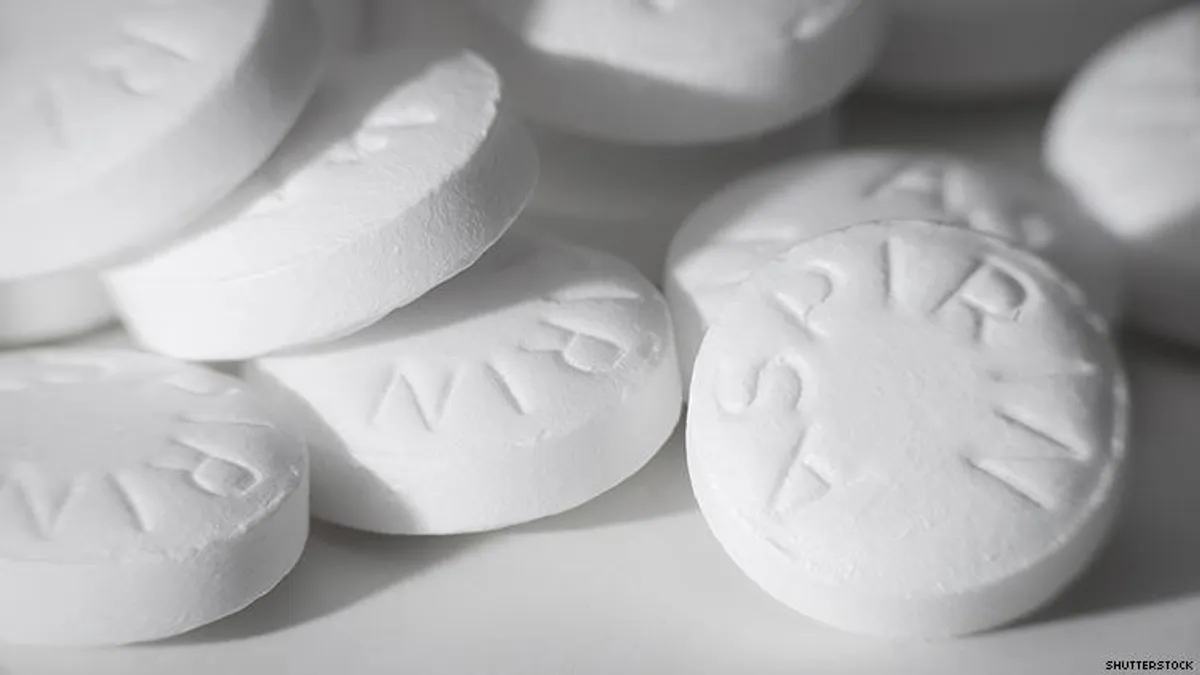Prevention
Aspirin May Prevent HIV Transmission in Women

By continuing to use our site, you agree to our Privacy Policy and Terms of Use.

Over-the-counter drugs sometimes have hidden secrets. Recent evidence suggests that common low-dose aspirin may hold the answer to helping to prevent the transmission of HIV in women.
Young African women remain near the top of the list of the people who are most at risk of being infected with HIV. In the United States, African American women disproportionately accounted for nearly 60 percent of all American women living with HIV.
Aspirin, as it turns out, has many added bonus effects that are beneficial. Aspirin can prevent heart attacks in people who are at risk of coronary artery disease. Its inflammatory properties may also prove to be beneficial to HIV-negative women.
A pilot study was recently published in the Journal of the International AIDS Society. Researchers initially hypothesized that because a low dose of aspirin reduces inflammation, and that inflammation generates activated HIV target cells in the genital tract, Aspirin would therefore decrease the number of HIV target cells in the female genital tract.
Kenyan women, who were HIV-negative but also at high risk of contracting HIV were observed. They were given the same small dose of aspirin that is recommended for daily use to lower the risk of a heart attack — 81mg of acetylsalicylic acid (Aspirin). Some of the women were also given 200mg of hydroxychloroquine to also reduce inflammation. Researchers found that aspirin reduced the number of HIV target cells in the female genital tract by 35 percent. Since HIV needs an activated target cell for survival, the lack of those cells means a reduced risk of HIV seroconversion.
"Further research is needed to confirm our results with Aspirin and test whether this level of target cell reduction will actually prevent HIV infections," Keith R. Fowke told Medical Xpress. "If so, this could be a strategy for HIV prevention that is not only inexpensive, but easily access[ible] globally. People living in poverty are disproportionately at risk of acquiring HIV. We need prevention approaches that are affordable and immediately available." Fowke hopes to unlock potentially new ways of fighting HIV.
The research was in part funded by a grant from the Canadian Institutes of Health Research and a Rising Stars grant from Grand Challenge Canada.
The same team of investigators conducted an earlier study last May, published in the Journal of Controlled Release. For that study, researchers found they could reduce inflammation in animals, using an intravaginal ring.
The female participants indicated that it is easier to be caught with aspirin, than say, an obvious HIV prevention drug like PrEP. At least with aspirin, they could fly under the radar of prying minds, especially in areas with a high stigma surrounding HIV.
The good news is that while HIV rates remain high among women in Africa, drugs like aspirin may be able to help reduce the risk. For headaches alone, there are stronger over-the-counter drugs out there that simply work better, like ibuprofen(Advil) or naproxen sodium (Aleve). Aspirin, however, is beginning to prove its usefulness for multiple purposes.